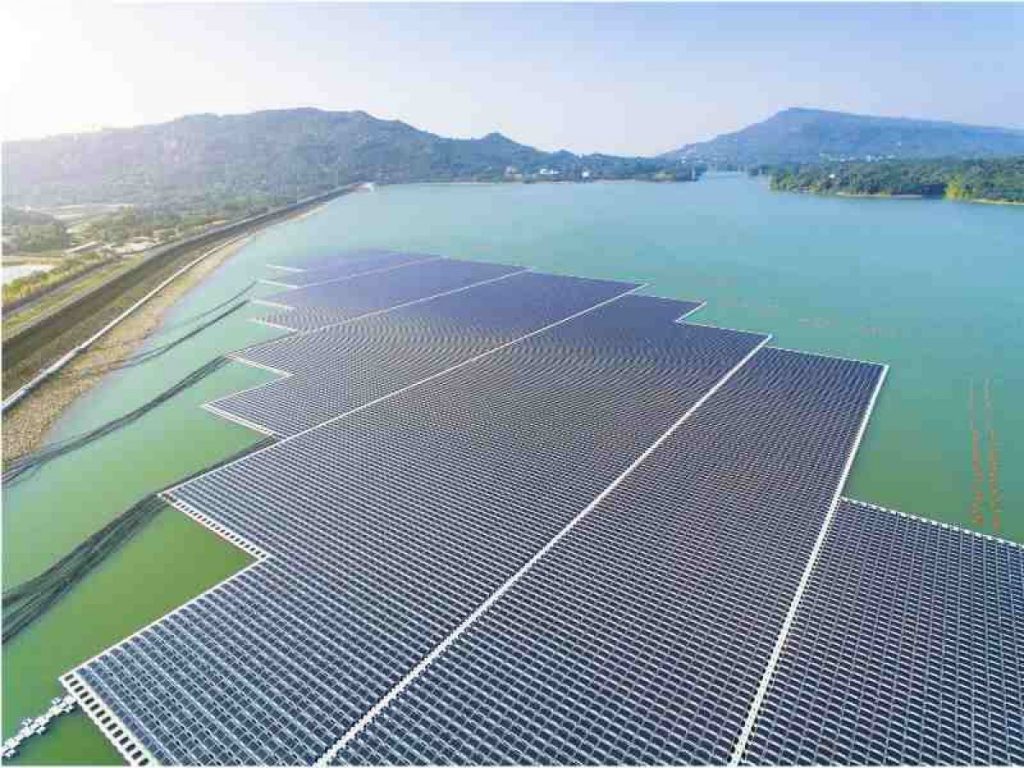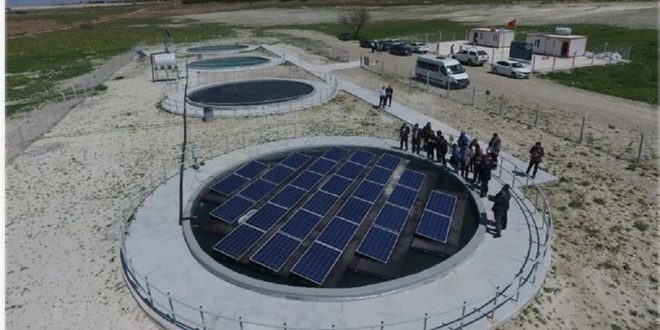Turkish authorities are planning to install solar panels on lakes and dams to prevent evaporation as some of the major lakes in Anatolia are under the threat of drought due to reduced precipitation levels resulting from global warming.
The Agriculture Ministry as well as the General Directorate of State Hydraulic Works (DSİ) are chalking out plans to save the country’s water resources, as soaring temperatures have aggravated not only evaporation and led to insufficient precipitation but is affecting both agriculture and human life.

Determining that unconscious use of water resources, wrong irrigation and drainage practices, as well as evaporation, cause serious water loss, authorities prepared a four-option project in line with a program centered on Lake Burdur in Turkey’s southwest.
Four pools were created on Lake Burdur, one with shade balls and the other with floating solar panels. One of them was chosen as a control pool, and a mixture containing chemical substances, defined as a monolayer, was placed in the last one.
Precise measurements made as a result of the three-year study revealed some pleasing findings.
Evaporation was inhibited by 10.8 percent in the monolayer, 67 percent in the pool with shade balls, and 54 percent in the pool with solar panels, compared to the control pool.
However, the study noted that although shade balls helped in saving water significantly, the treatment plants have to be raised to a higher standard if used as drinking water sources, requiring serious financial resources and investments.

Emerged as a result of the examination of the floating solar panels, the findings revealed that the organic matter phthalates were transferred to the water in large quantities.
The panels should not be installed on the surface of drinking water sources, but there is no harm in installing them on irrigation water or recreational areas, experts noted.
For this purpose, a feasibility study was conducted for the 14-square-kilometer surface of Lake Burdur. It was concluded that when the surface of the lake is covered with solar energy panels, it led to 5.2 million cubic meters of less evaporation than would normally occur, thanks to the panels.
According to the energy production system implementation calculations, annual electricity production of 2.4 gigawatts and an income of 2.8 billion Turkish Liras ($331 million) were calculated.
If the ministry expands the pilot project, floating solar panels will be installed on 200 natural lakes, 822 dams and 507 ponds that are not used for drinking water.
This initiative aims to reduce the effects of water loss and drought as well as to generate billions of liras worth of electricity.
Global climate change is the main culprit in the drought that has hit the already arid water resources in Anatolia hard. Lakes shrink day by day, posing a considerable threat to agricultural irrigation.
www.hurriyetdailynews.com
 THE GLOBAL WINDOW OF TURKISH FOOD AND AGRICULTURE The Global Window of Turkish Food and Agriculture Sector
THE GLOBAL WINDOW OF TURKISH FOOD AND AGRICULTURE The Global Window of Turkish Food and Agriculture Sector









